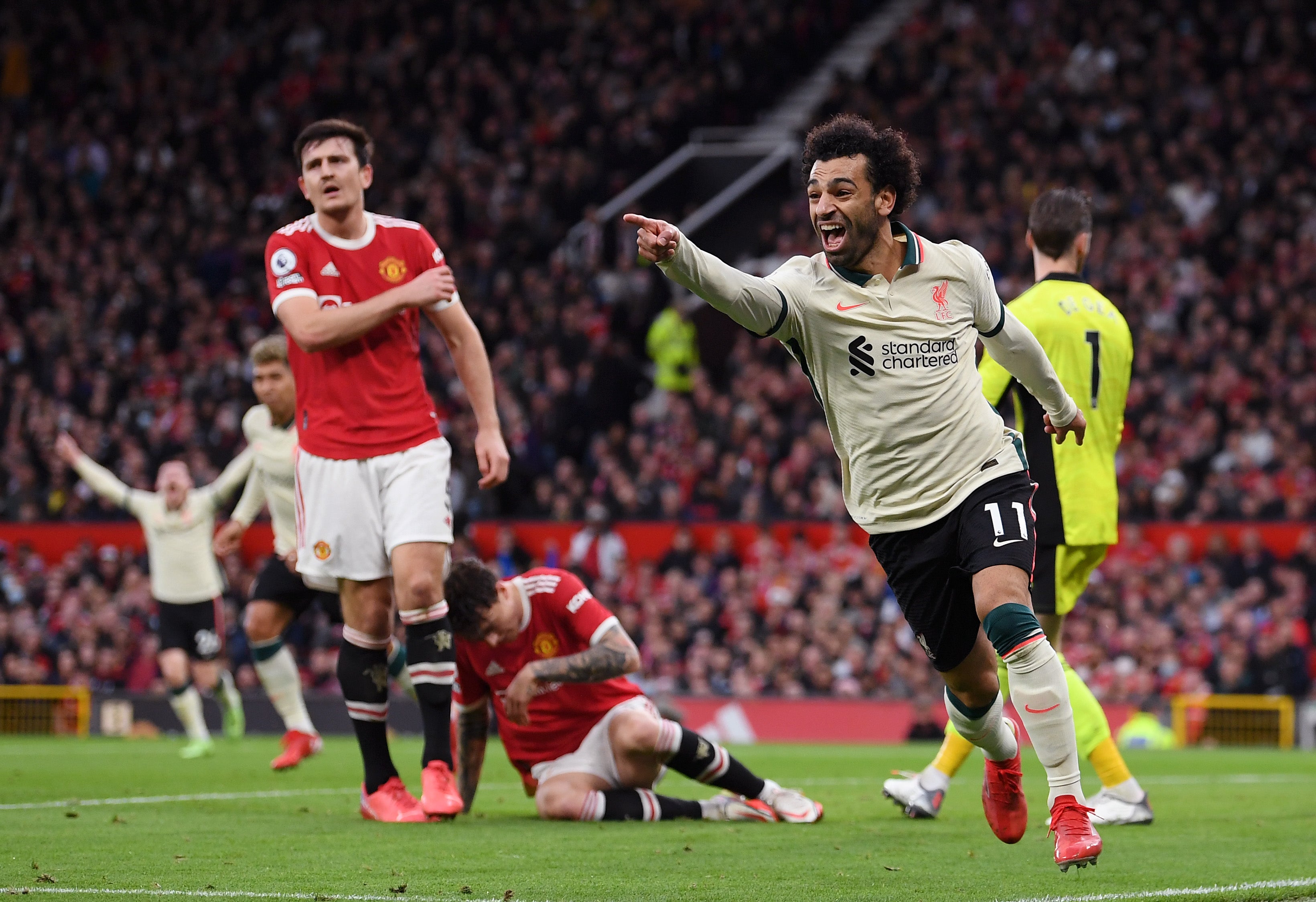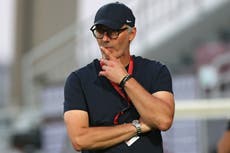What legacy does Ole Gunnar Solskjaer leave as Manchester United manager?
Solskjaer leaves having failed to win a trophy or elevating United to the level of genuine contenders for major honours, but also having achieved what he was brought in to do
When Ole Gunnar Solskjaer returned to Old Trafford on an interim basis nearly three years ago now, his track record as a manager consisted of two Tippeligaen titles, a Norwegian Cup and a handful of honours at reserve team level which still carried [citation needed] tags on his Wikipedia page.
The most recent of those trophies had come in 2013, six years earlier. Since then, Solskjaer had suffered one relegation at Cardiff City and a few seasons without distinction back in Norway. It was not the CV of a Manchester United manager. Perhaps that is why some of his former players at Molde began removing United players from their fantasy football teams.
They would soon be rushing to bring those same players back in, though, as the most improbable, the most intoxicating but mainly the most bewildering episode of United’s post-Sir Alex Ferguson era began far better than they could ever expect. In fairness, they were not the only ones to be taken by surprise.
Not even Solskjaer’s predicted his start. Senior Old Trafford officials admitted they had “barely dared to dream” he would win 14 of his first 19 games and take 32 points from a possible 39 in the league. The atmosphere around the club had been transformed, to the extent that staff were said to be hugging and crying at the team’s Carrington training ground upon news of Solskjaer’s eventual permanent appointment.
Though it was stressed there was no one moment in which this “stop gap” had demonstrated the “option value” which turned Solskjaer from a caretaker into Ferguson’s fourth successor, beating his main rival for the job Mauricio Pochettino was taken as a promising sign, and the extraordinary win against Paris Saint-Germain – still probably the highlight of Solskjaer’s entire spell – made it inevitable.
That night, in the bowels of the Parc des Princes, Solskjaer took a while completing his many post-match media duties, partly due to enjoying a dressing room celebration with Ferguson and Eric Cantona. As he left the press conference room apologising for having kept everyone waiting, one journalist joked with him: “I didn’t think you could do anything wrong.”
That was very much the sentiment among the United supporters and hierarchy at the time too and it would enjoy a remarkably long shelf-life. It survived the late season collapse which ended hopes of a top-four finish. It survived a dismal first half of the following campaign. It survived the 6-1 home defeat to Tottenham, the embarrassment away to Istanbul Basaksehir, the failure to qualify from the Champions League group stage, the four semi-final defeats and Europa League final no-show in Gdansk.
It was only during the cumbersome start to this season that confidence in Solskjaer began to erode among those whose opinions he cared for the most: the players, the fans and the board. Even then, as some match-going regulars and several members of the first team squad began to lose faith, there was no temptation among Old Trafford’s key decision-makers to replace him.
Yet after the astonishing 5-0 defeat to Liverpool that the mood began to shift. Solskjaer himself had started to fear for his job. Questions on his future went unanswered for much of the following day, then there eventually came an admission that there was a lot to do to turn the season around. It did not represent a total loss of support but it was a clear change in emphasis.
Even after the limp display in defeat in the Manchester derby, United felt as though Solskjaer had earned the right to use the international break as an opportunity to turn things around. Saturday’s trip to relegation-threatened Watford had been viewed, fairly, as the more generous fixture in United’s testing schedule and a platform for improvement but previous results in fact made it the most dangerous of all. The 4-1 defeat “made it clear” a long overdue change was necessary.
Discussions over Solskjaer’s severance package were in motion less than an hour after the final whistle went at Vicarage Road, while he was saying tentative goodbyes to some members of club staff present. That his final act as United manager should be to apologise to an away end amid the sound of boos and jeers is sad for a former player and now former manager who will nevertheless remain a United legend.
But what, then, is this legend’s legacy? As a player, it is secure. As a manager, it has long been claimed that despite Solskjaer’s faults, he would leave the club in a better state than it was in when he returned. If you wanted to be cruel, you could joke that isn’t saying particularly much, but then again this fourth Old Trafford managerial sacking in almost 35 years is very different to the last.
The statement announcing Jose Mourinho’s exit was three sentences and 65 words long. Solskjaer’s equivalent was made up of 159 words and took just two sentences to use that word “legend”. Whereas club sources spoke of “paranoia” and a “toxic environment” after Mourinho’s departure, there has instead been praise for Solskjaer’s contribution to United’s rebuilding in the years since. He has even given a farewell interview to MUTV.
There are some valid reasons for all this good will. Solskjaer secured United’s first back-to-back top three finishes of the post-Ferguson era and two of the best three Premier League campaigns. His win ratio – 54 per cent – is the third-best of the club’s post-war managers. Under him, they scored five or more goals on 10 separate occasions. In the 302 games under Mourinho, Louis van Gaal and David Moyes, United managed that only twice.
Success is not measured in win ratios at a club of United’s stature though, otherwise it might be time to rename Sir Matt Busby Way – a mere 50 per cent, in case you’re wondering. It is measured in silverware and, more often, a confidence that even if United are not currently winning league titles and Champions Leagues, that they are at least well-placed to compete and succeed in the near future.
That confidence was always in short supply under Solskjaer, but not even his most loyal advocates have been able to make that argument since the Liverpool defeat. And while the United manager was generally well-liked and there has been nothing like the toxicity of Mourinho’s final days, the mood at Carrington and within the dressing room had soured over the past month, to the point where the positives of his time in charge were at risk of being damaged or undone.

There have been numerous complaints, the most common being that Solskjaer’s loyalty to under-performing players tipped over into an unhealthy favouritism. The failure to give regular opportunities to the likes of Donny van de Beek and Jesse Lingard has been poorly received by many in the squad, while others have felt ostracised and stuck behind teammates who always seemed to retain Solskjaer’s trust.
It will now be up to caretaker Michael Carrick and assistants Mike Phelan and Kieran McKenna to ease those tensions and reintegrate players on the fringes back into the first team rotation, starting with Tuesday’s visit to Villarreal with a Champions League knockout place to secure, though there have been reservations about the training ground approaches of those who remain in charge too.
The first murmurings of discontent with the level of coaching predated the recent slump in results though have been exacerbated by them. Bruno Fernandes publicly hinted at such concerns last month when saying that Solskjaer and his backroom staff know there must be “some improvement at their end”, raising eyebrows in the process. Solskjaer, nevertheless, is the only member of staff departing immediately.
If there has been undeniable improvement in one area of the club under him, it is the playing talent. At a considerable expense of £436m, excluding one of the highest wage bills in European football, United have built a squad with the type of quality which should be able to consistently compete for major honours, especially in the attack, but it is also unevenly shaped and unbalanced.
That is by no means solely on Solskjaer, who was only one part of a wider recruitment structure. The Norwegian is said to have wanted a much-needed holding midfield player during the summer and was initially hesitant over Cristiano Ronaldo’s return, which ultimately raised expectations to a level United could not match. Still, it punctures the idea that this is a squad that is oven-ready to succeed under a different manager.
And then there is the bigger question of whether this is a club that is ready to succeed under a different manager. For even if Solskjaer has left United in a better place than they were in three years ago and on better terms than any of his post-Ferguson predecessors, he departs only four months into a new three-year contract, without a permanent or even an interim successor lined up, yet a long time after his limitations as an elite-level coach had become clear.
The [citation needed] tags are no longer part of Solskjaer’s Wikipedia page but that is the only change to his honours roll. He leaves Old Trafford with a mixed legacy: without adding to the trophy cabinet or elevating United to the level of genuine contenders for major honours, but having achieved what he was brought in to do by stabilising the club up until the end of last season and with his legendary status among the support intact. That’s not bad for a manager who, at any other top club, probably would not have been appointed in the first place.
Join our commenting forum
Join thought-provoking conversations, follow other Independent readers and see their replies
Comments



Bookmark popover
Removed from bookmarks